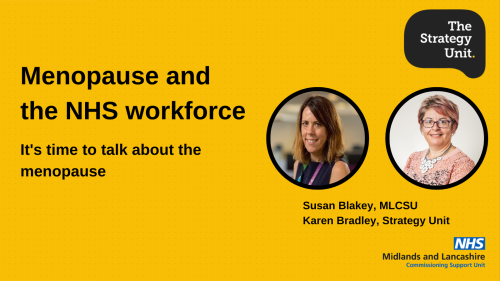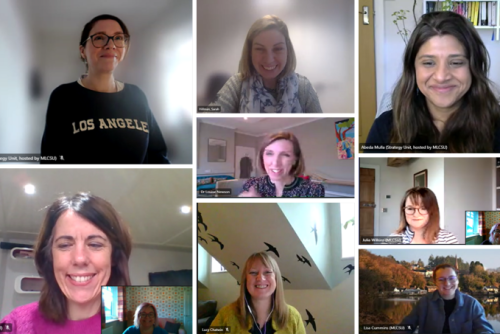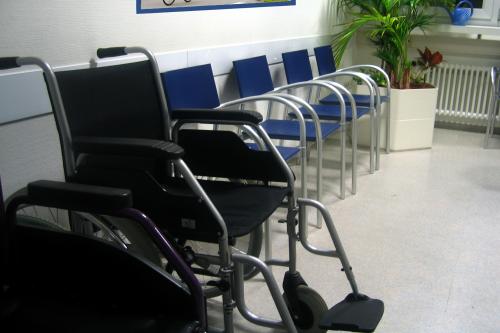
News
Need, demand, and supply of GP services: an old lens on an ever-present problem
About 20 years ago, I attended a lecture given by Andrew Stevens, a rather formidable and austere Professor of Public Health at the Un

News
Part-time GPs and the decline in continuity of care: a cause or a symptom?
In our recent paper we explore why levels of care continuity have been declining and what might be done to turn things around.

News
Two sides of the same coin
Hospital demand arising from GPs not seeing patients, is eating into the resources that they would use to manage down the elective backlog. In turn, this is creating more demand for GPs.

News
Are GP consultation rates rising or falling? Who or what should we believe?
If the "data suggests" GP appointments are substantially higher than pre-pandemic, then what is behind patients reporting recieving fewer appointments?

News
GP services: new analysis and fresh insights
In our latest analysis for the Midlands Decision Support Network (MDSN), we explore the long standing problem of access to GP practice consultations we consider the implications, and explore potential solutions.

News
A collaborative partnership with the Health Foundation
The Strategy Unit is collaborating with the Health Foundation to help address key health and social care issues by combining our expertise in data analysis.

Blog post Better use of analysis | Learning and development
Diagnosing harms?
All medicines are poisons. Everything that cures could kill if administered in the wrong doses, to the wrong people, at the wrong times, in the wrong ways.

Blog post Learning and development | Public health and prevention
Could a peer review methodology help drive continual learning within and across local systems?
In this blog Karen describes how peer review methodologies are being used to support learning in Long COVID services.

Blog post Evidence Reviews
No more suffering in silence, we want to talk about the menopause
To mark International Women’s Day on March 8, Karen Bradley, Principal Consultant at the Strategy Unit, and Susan Blakey, Senior People Consultant at MLCSU, two advisors involved in the recent project, ‘Menopause and the NHS Workforce’, discuss its significance and share what they want to see happen as a result of the published report.

News Better use of analysis
Analysts, we need to talk about…….
The future looks incredibly promising for ana

News Evaluation and impact assessment | Policy
Menopause and the NHS workforce
Now with the World Menopause Day 2022 update. What is it like to experience menopause as an NHS employee? And what is its impact on both the individuals and the organisations they work for?

News Elective care | Inequalities | Policy | Strategy Development
Helping ICSs to reduce inequalities in access to planned care
Are there inequalities in access to planned care? If so, what are they? Which groups ‘gain’ and which groups suffer? And what could be done to address any inequalities? In pursuing their objective of reducing inequalities, what could Integrated Care Systems (ICSs) do? What strategies and approaches are likely to be successful?

Blog post Emergency care | Policy | Primary, community and social care services | Public health and prevention
Infant-feeding problems during the pandemic
Emergency department attendances fell dramatically and systematically during the early phases of the COVID-19 pandemic. This effect was almost universal, affecting people from all parts of society and for all health conditions. But in our recent paper we highlight one notable exception to this rule -presentations at Emergency Departments for infant-feeding problems increased during the pandemic.

Blog post Better use of analysis | Problem Structuring
What was the question again?
We hear a lot about what’s stopping the NHS making the most of its army of talented analysts. Some say we just need more data, or data of better quality. Others point to deficiencies in our infrastructure, IT kit or the software we use. But I’m not so sure. For me the biggest shortfall is in good questions that we can feasibly address.

News Complex Modelling | Elective care | Inequalities
Inequalities in access to healthcare - what’s our next move?
Our research, published in the Lancet Regional Health Europe, highlights substantial inequities in access to elective hip replacement surgery. We found no evidence that these inequities reduced between 2006 and 2016.

News Futures thinking
‘Might’ is right
A good idea can be ruined by over-selling.

News Elective care | Inequalities
Strategies to reduce inequalities in access to planned hospital procedures
UPDATE 10th August: Now including briefing note for Integrated Care Boards on legal duties in respect of reducing inequalities. This report guides ICBs through the process.

News
Appointing an ICS ‘Chief Analyst’
The Strategy Unit has, over the last ten years, developed a way of working that has allowed us to become recognised as a leading analytical organisation in the NHS.

News Better use of analysis
‘Developing your ICS Intelligence Functions’: A Free Webinar Series
What is an ‘Intelligence Function’? What value can they add to decision making? How can they be configured and who needs to be involved? What lessons can be drawn from current practice?

Blog post
Treating people on waiting lists: who decides what is fair?
Waiting lists for elective care are in the news. The national plan has been issued, with the expectation that lists will continue to rise for some years - and that long waiting will not disappear anytime soon. Addressing this ‘backlog’ will remain a fundamental challenge for some time to come.